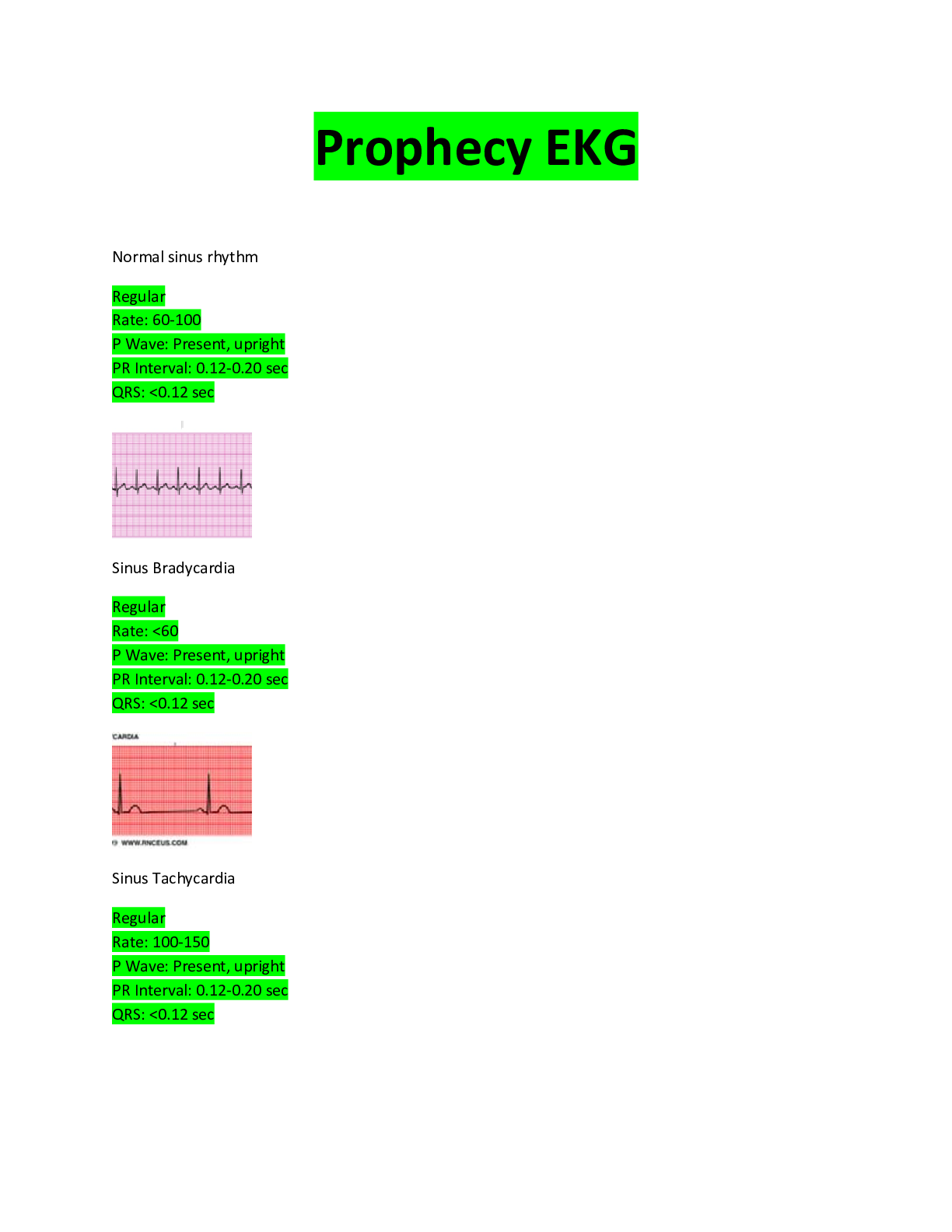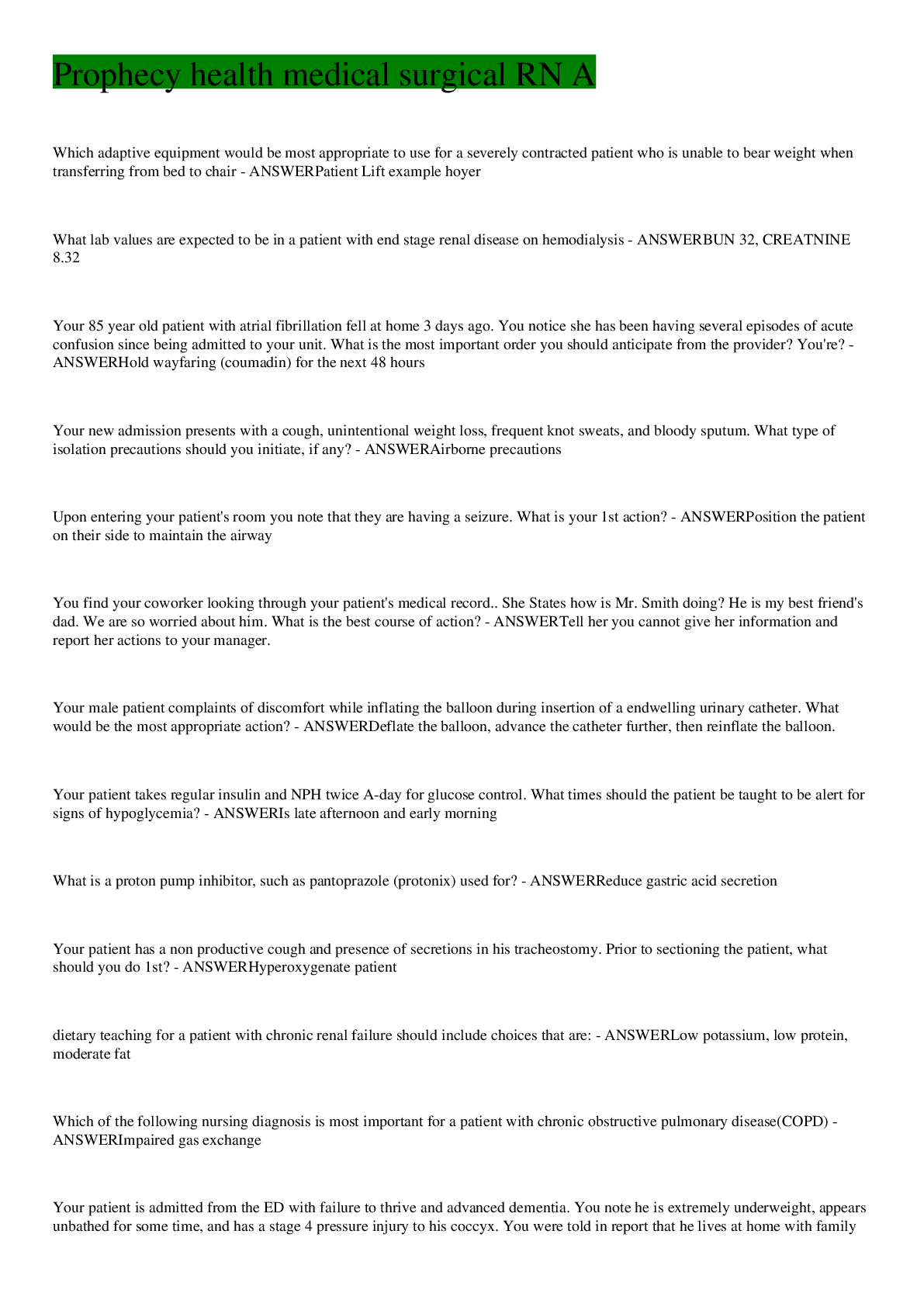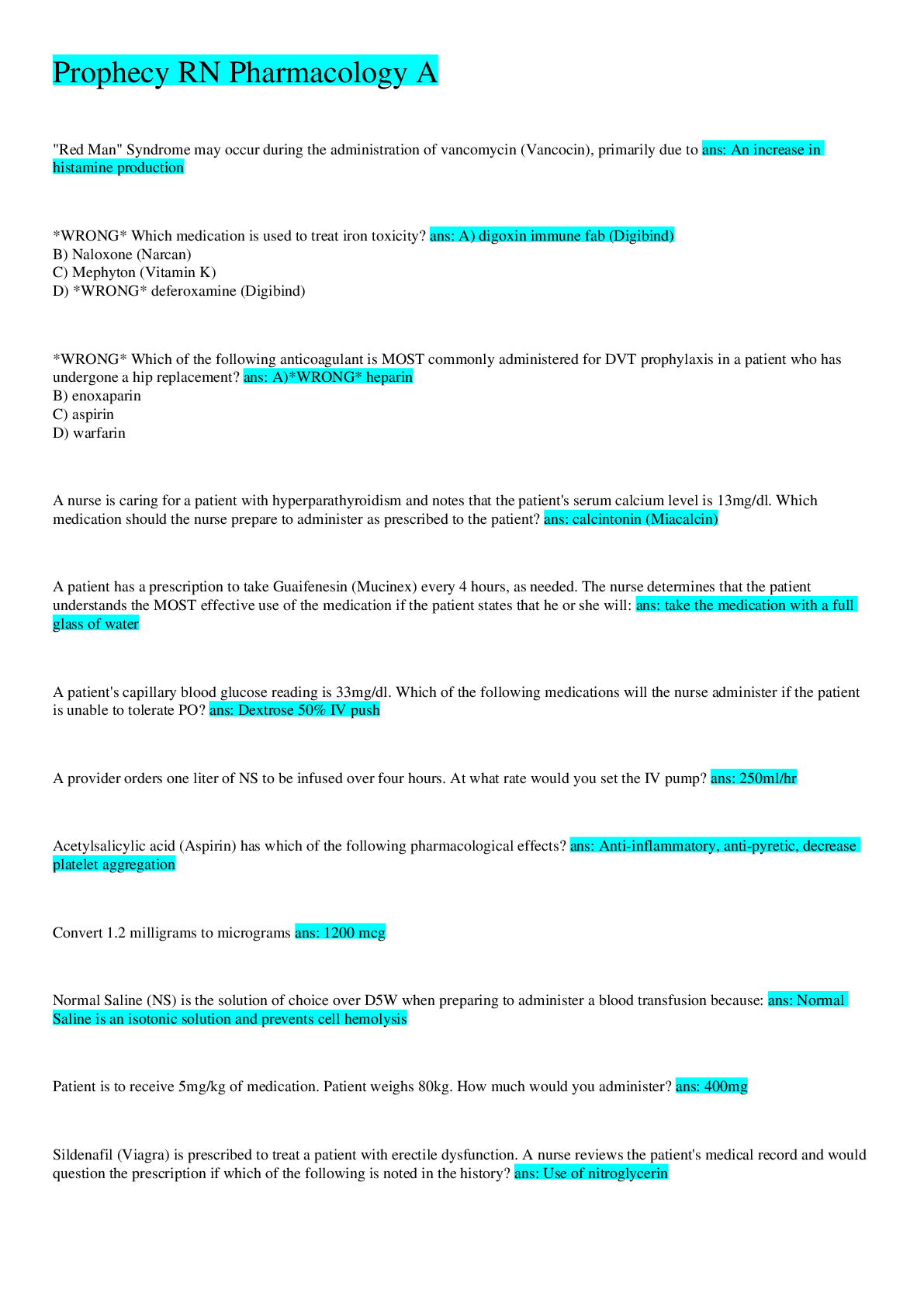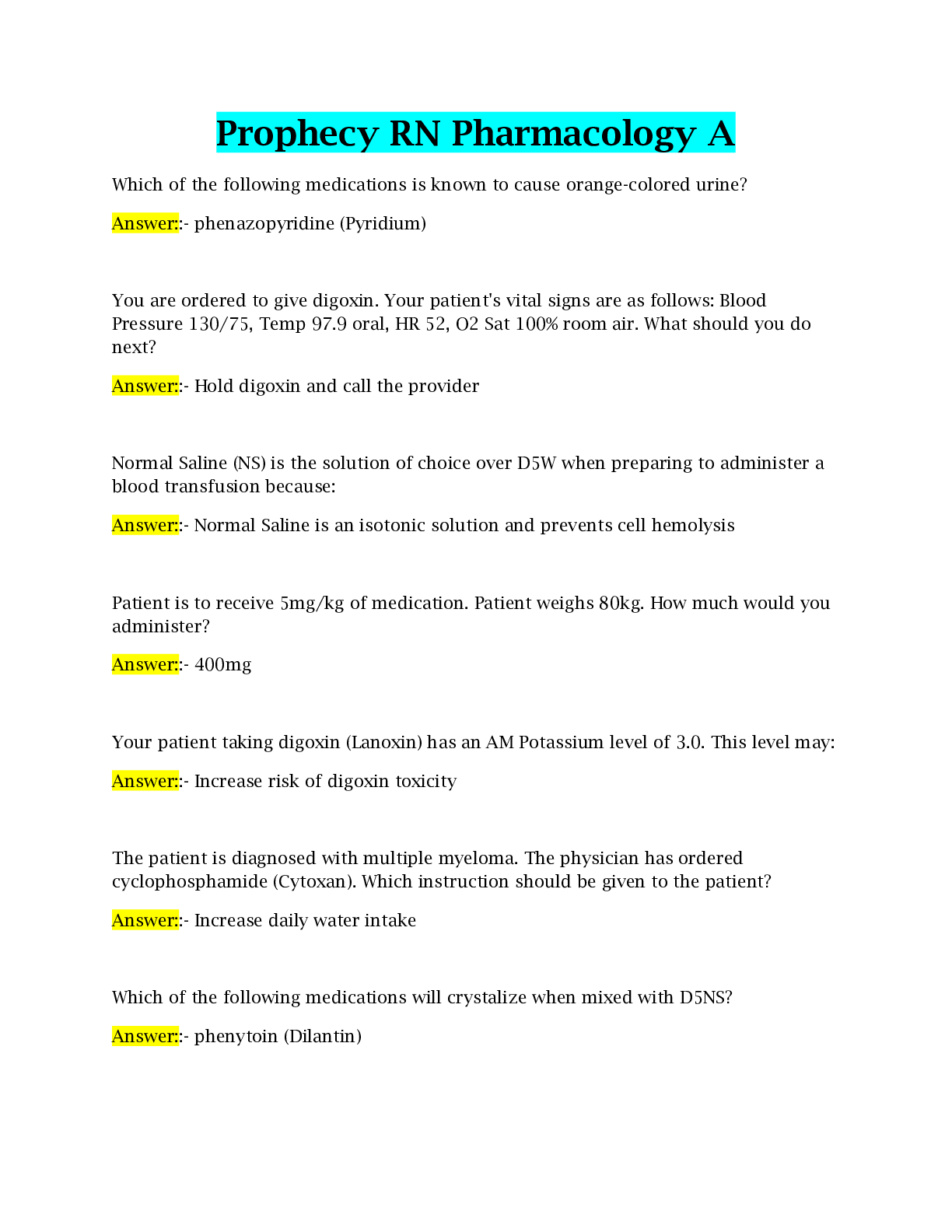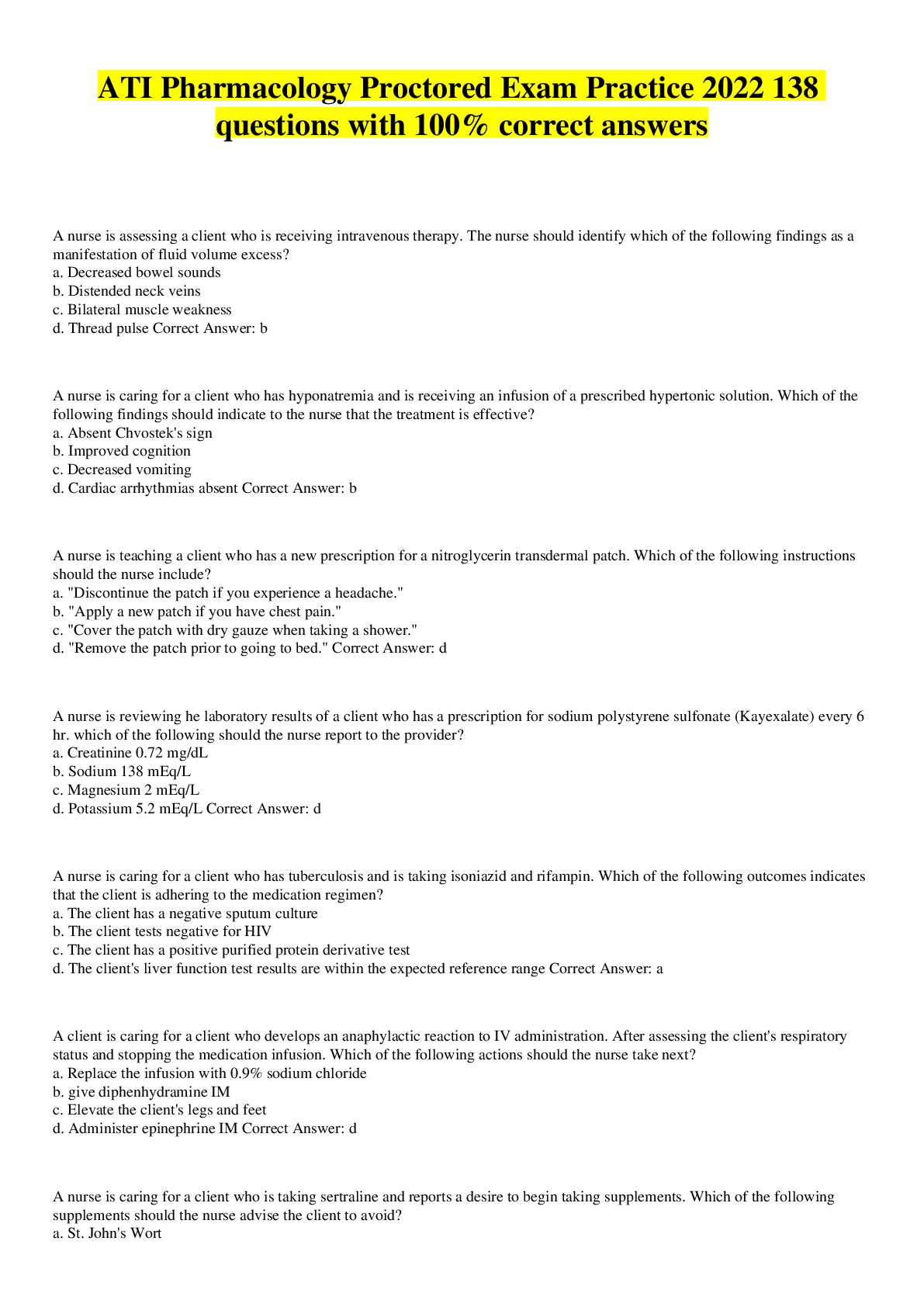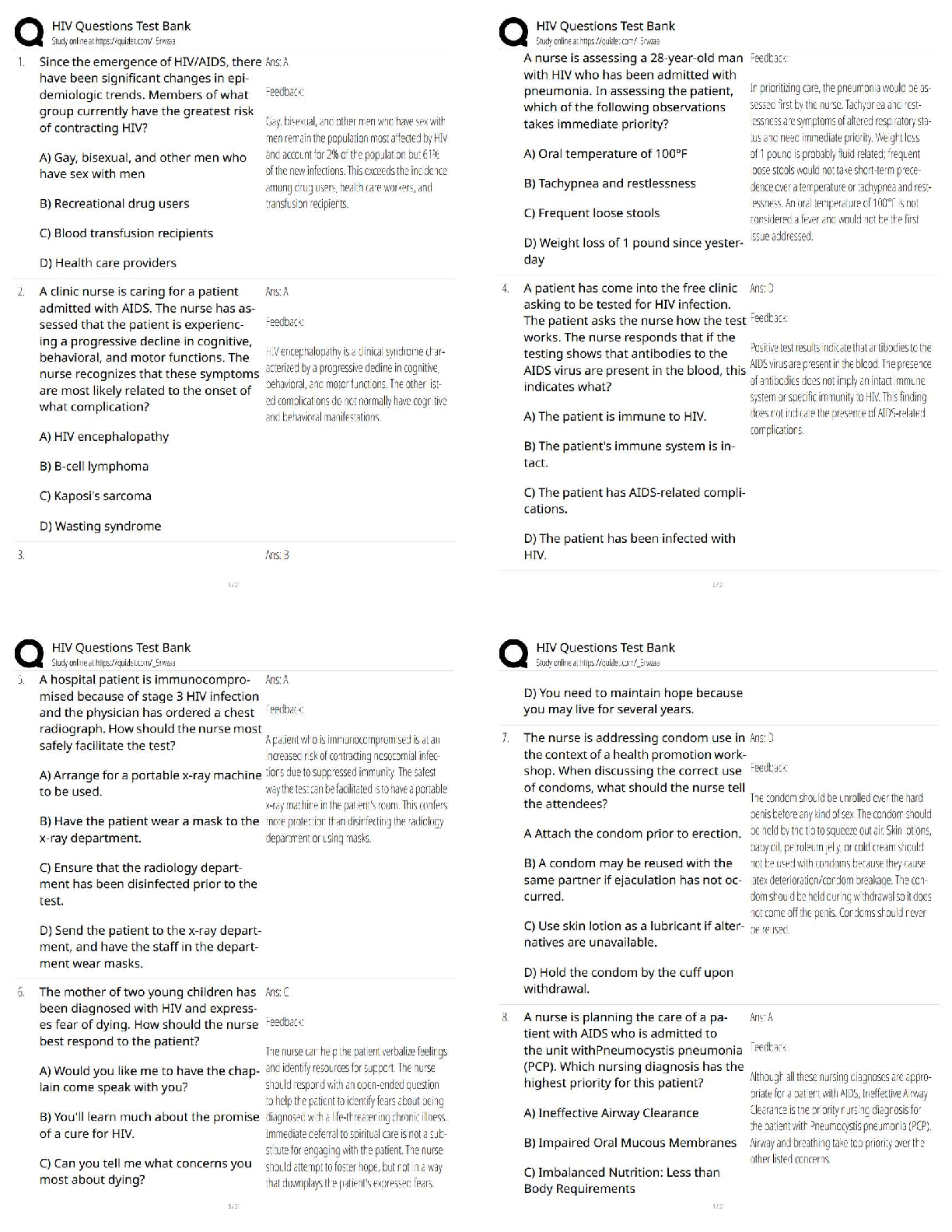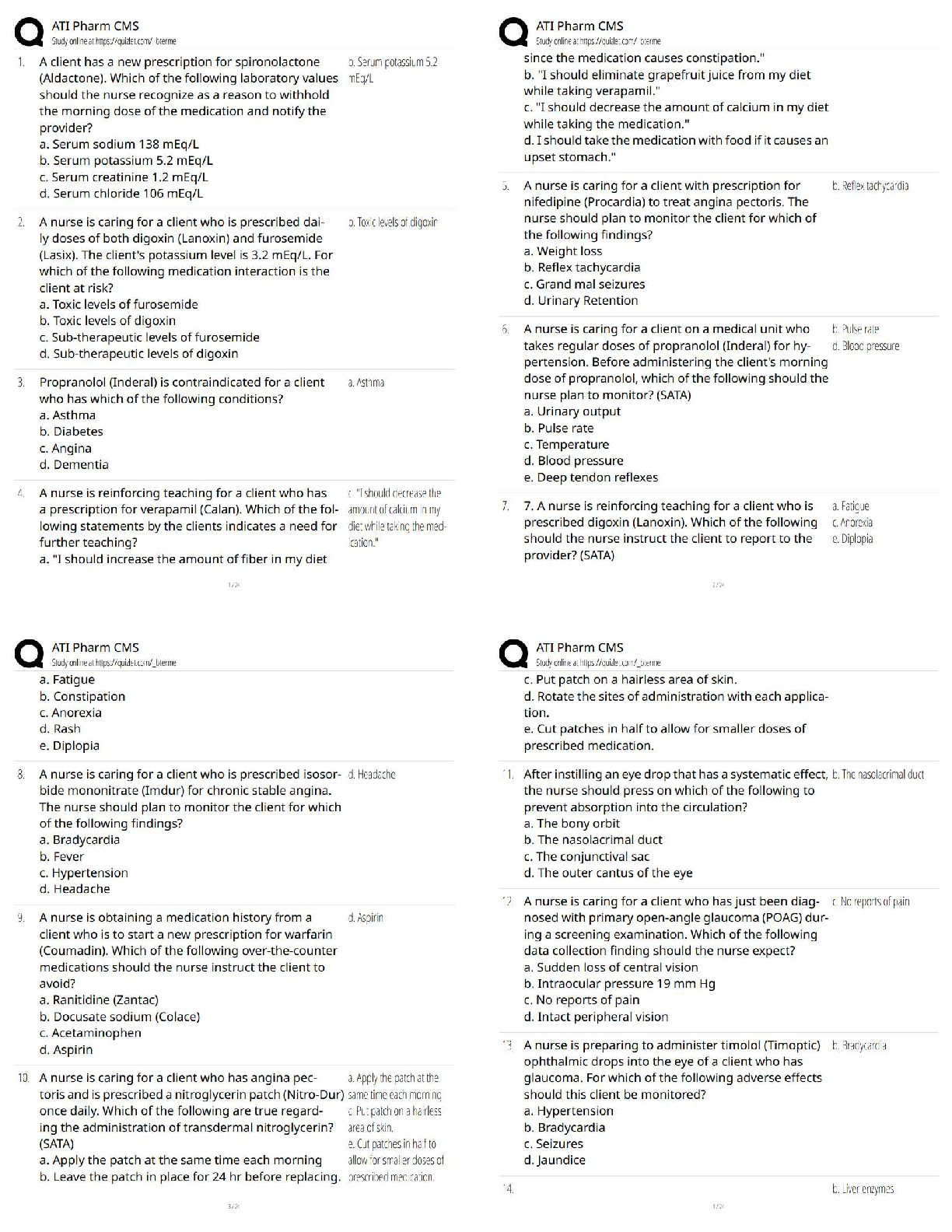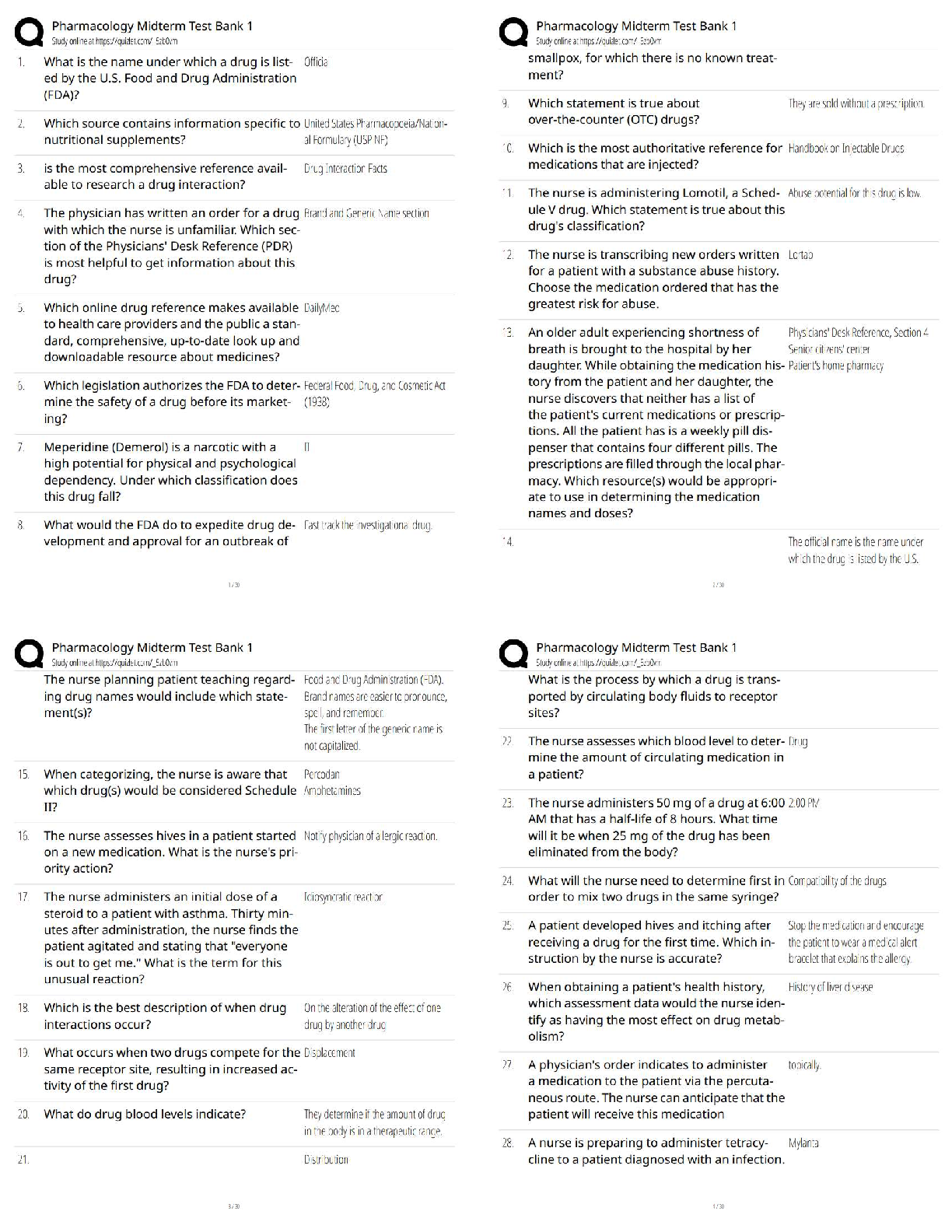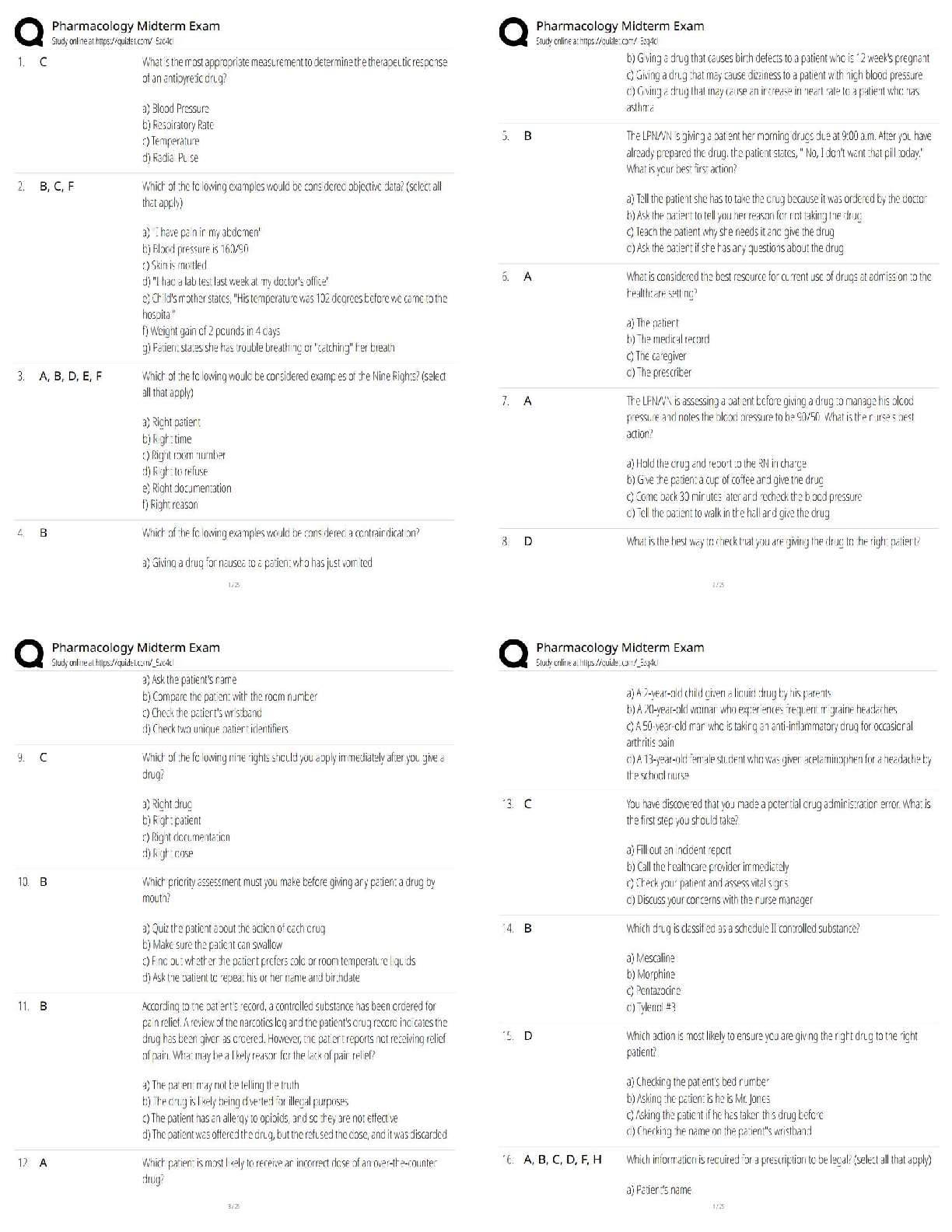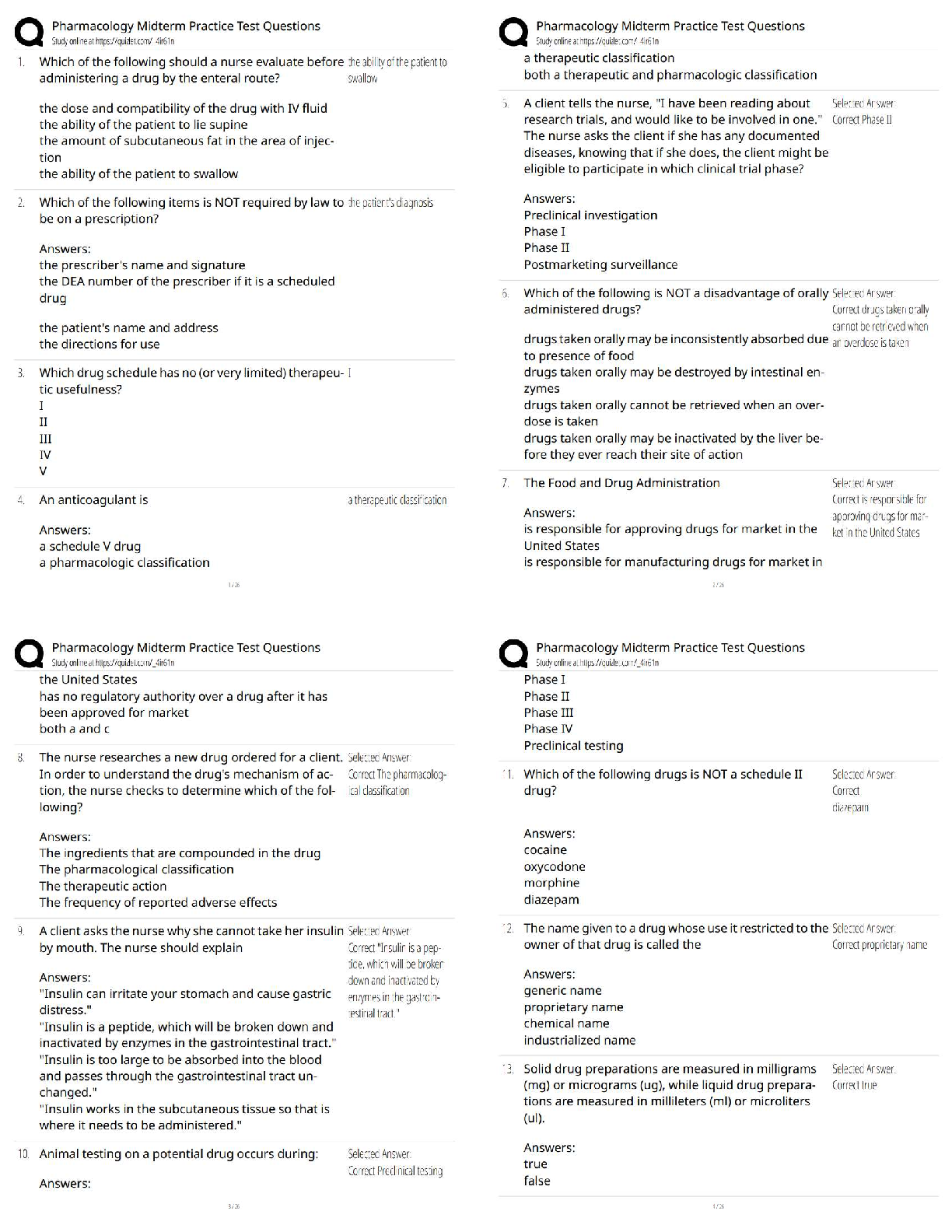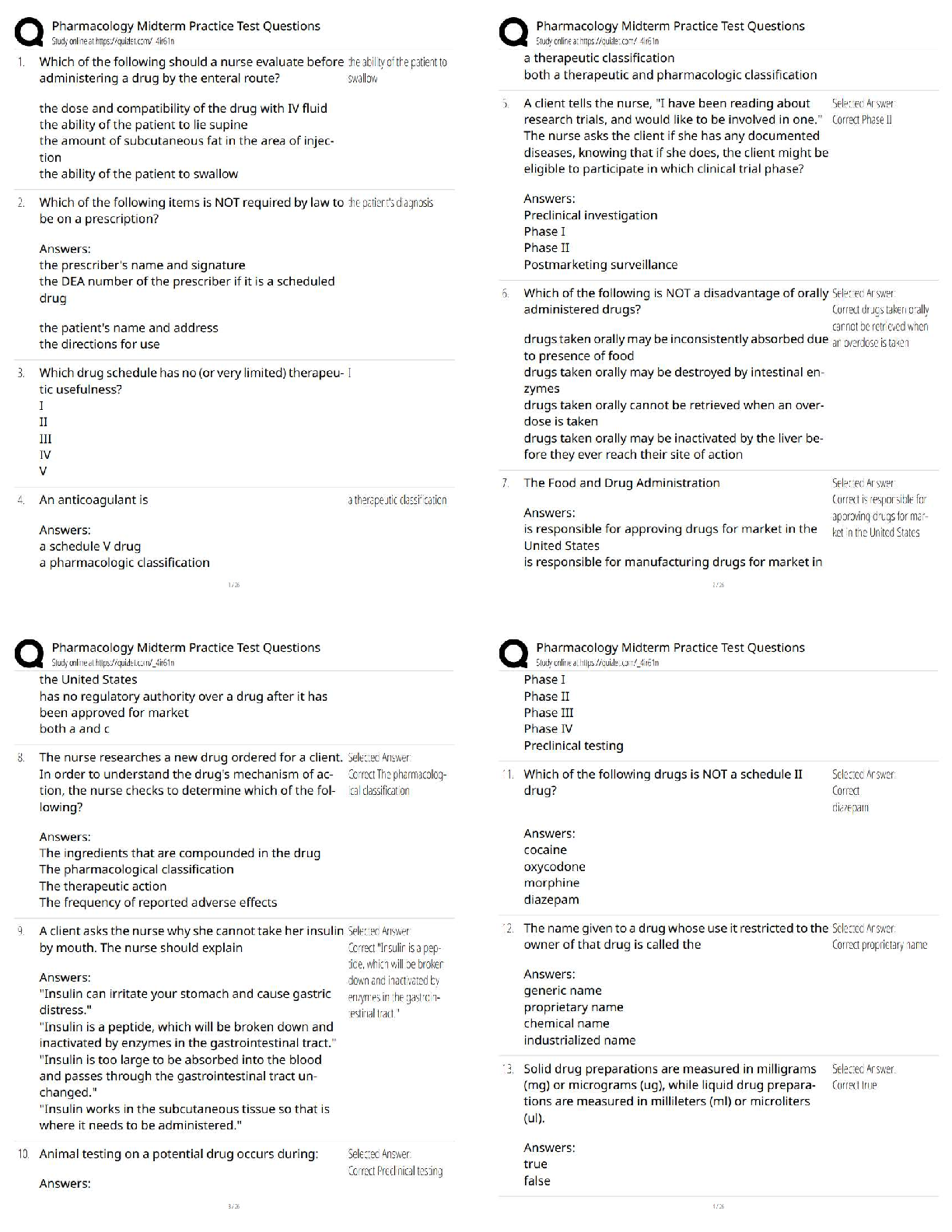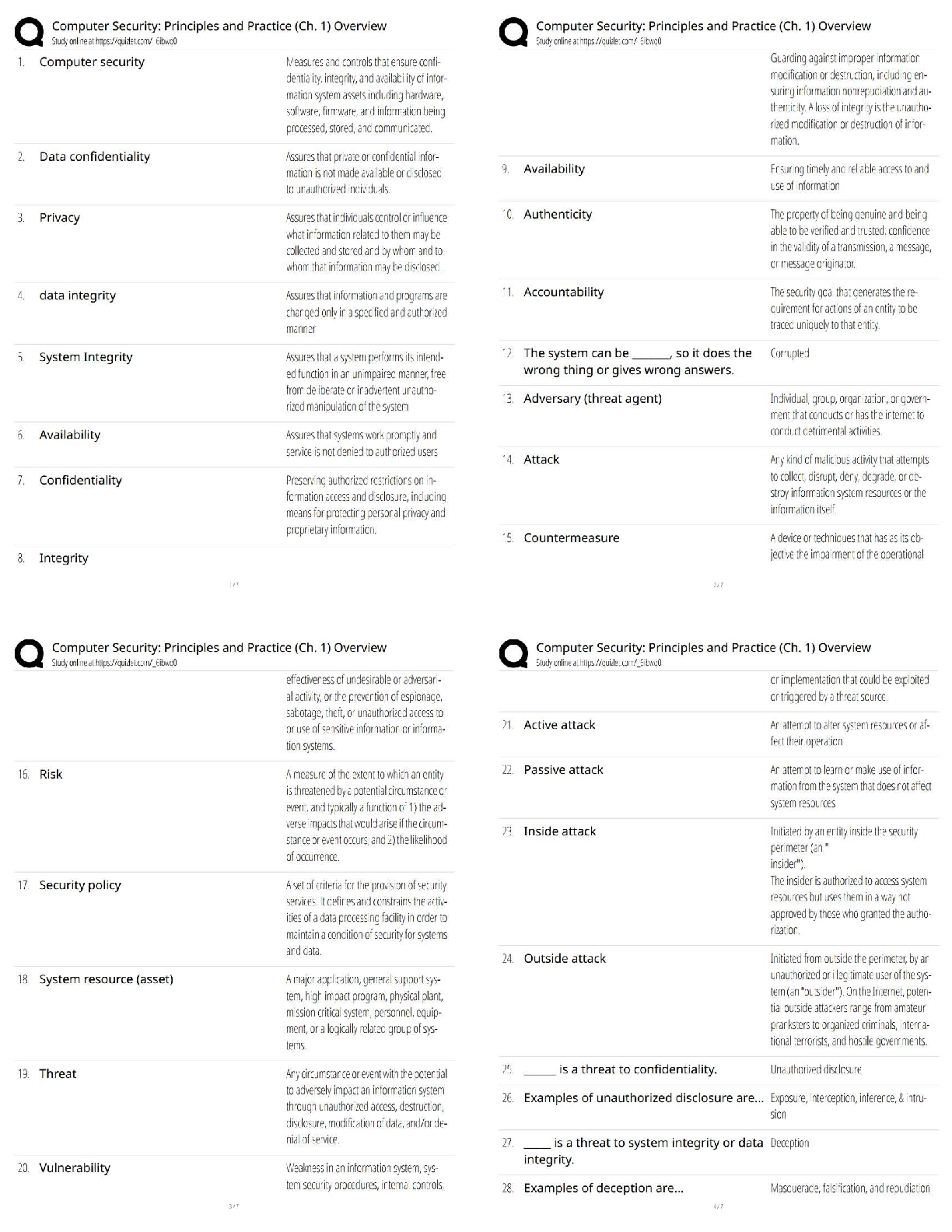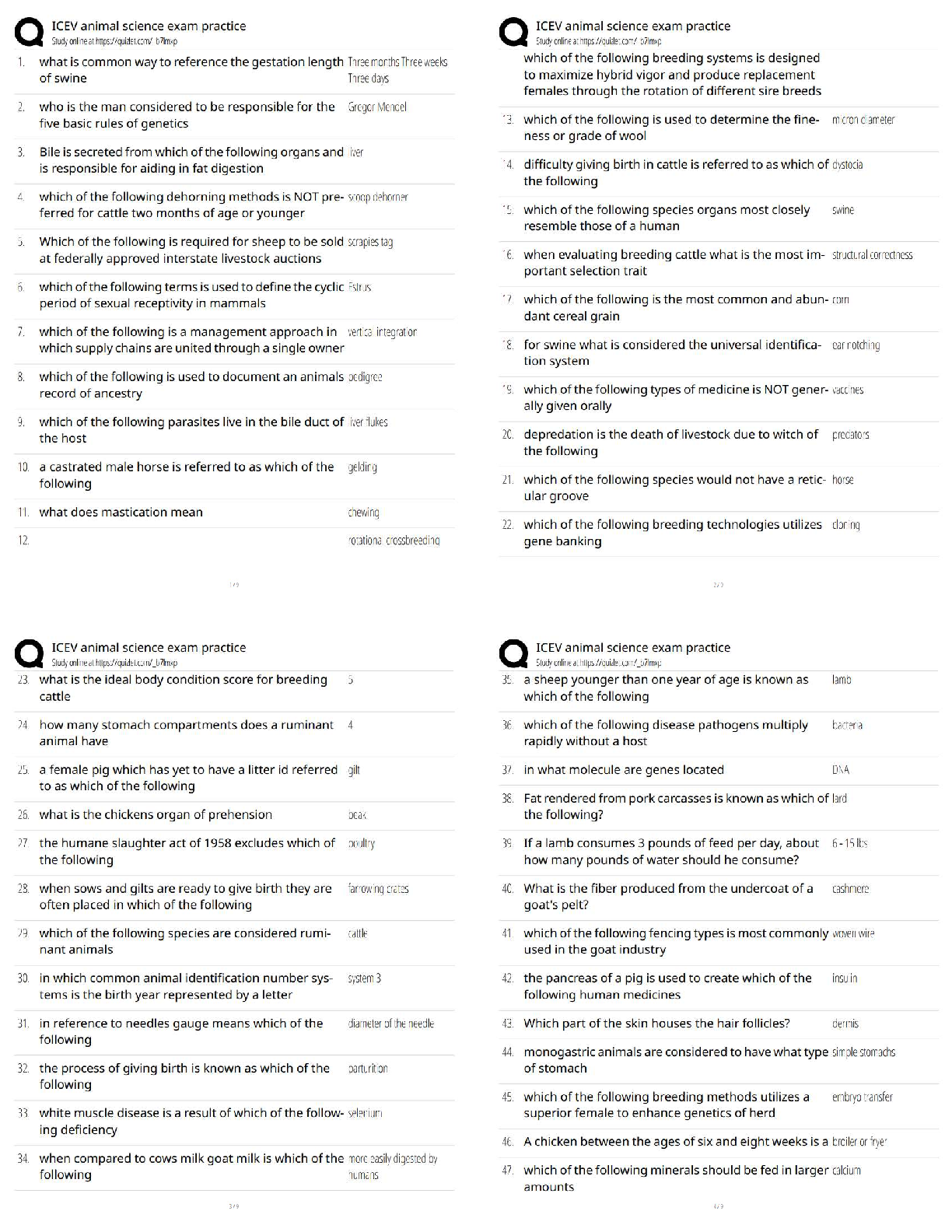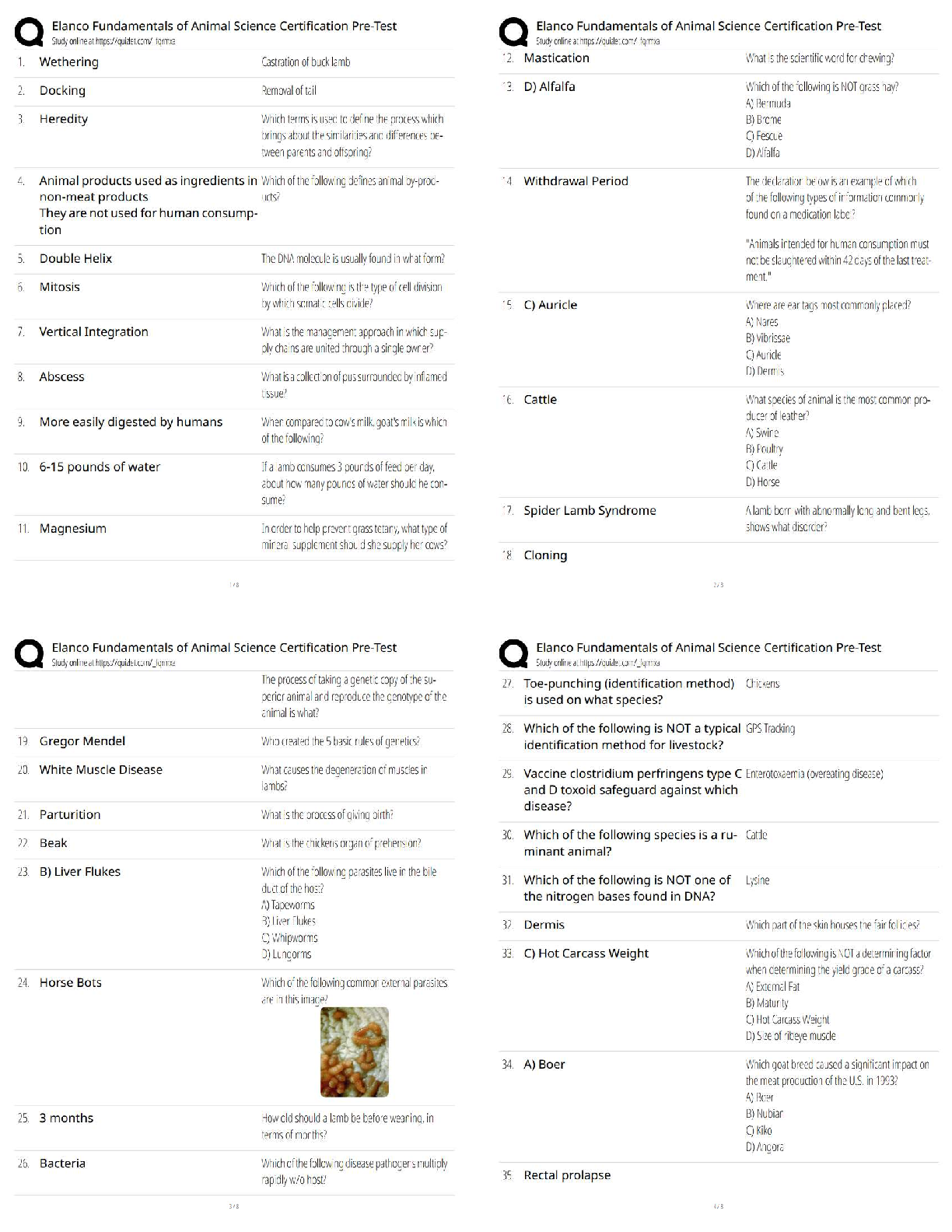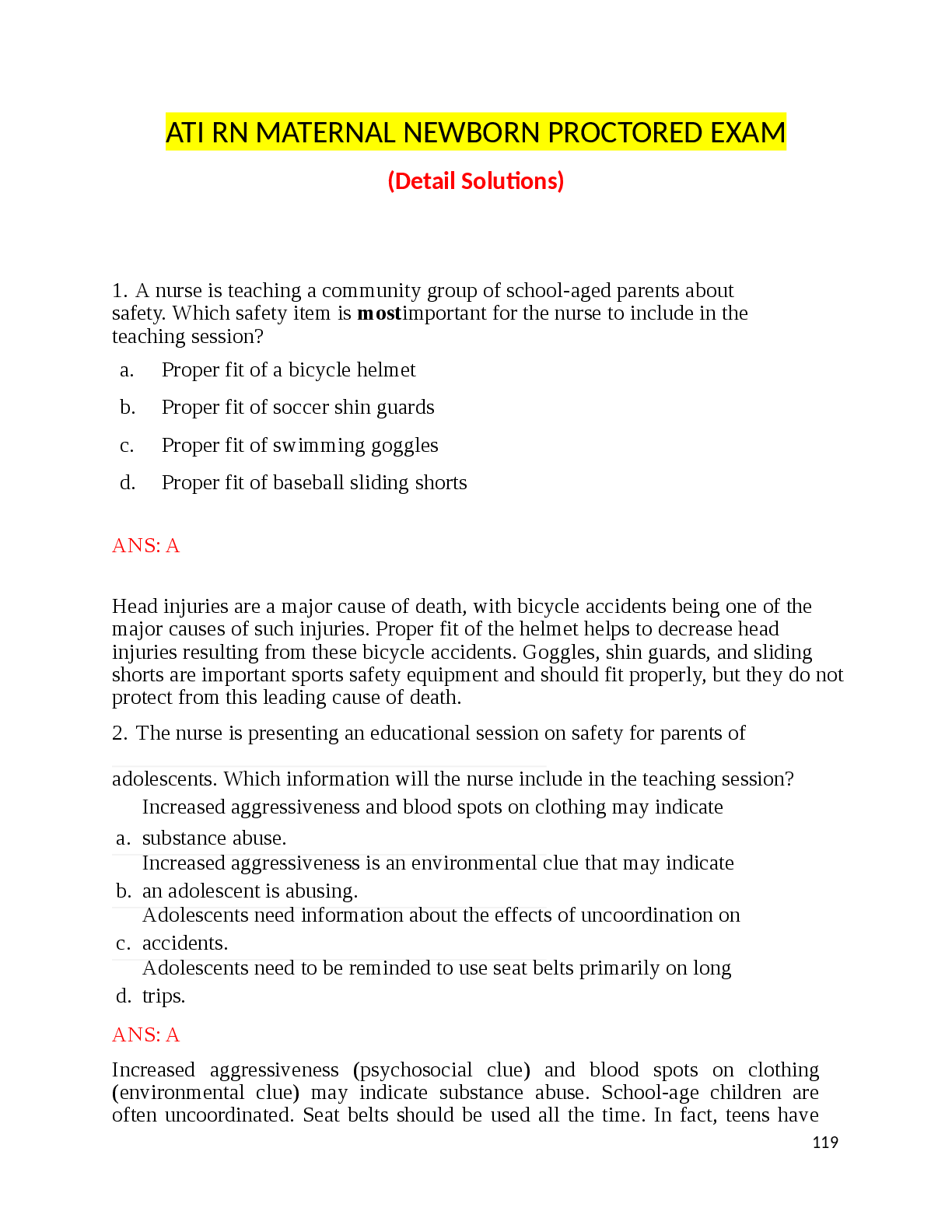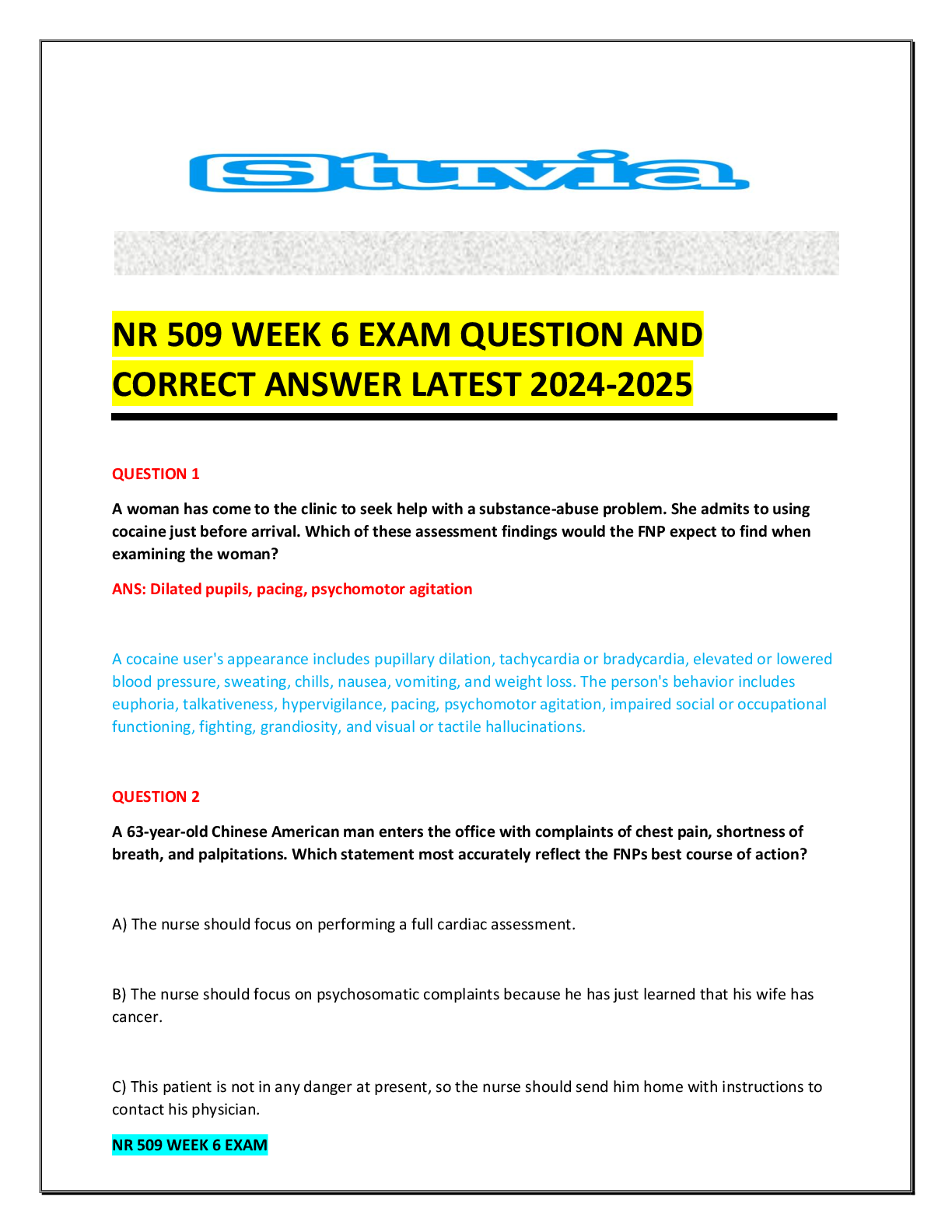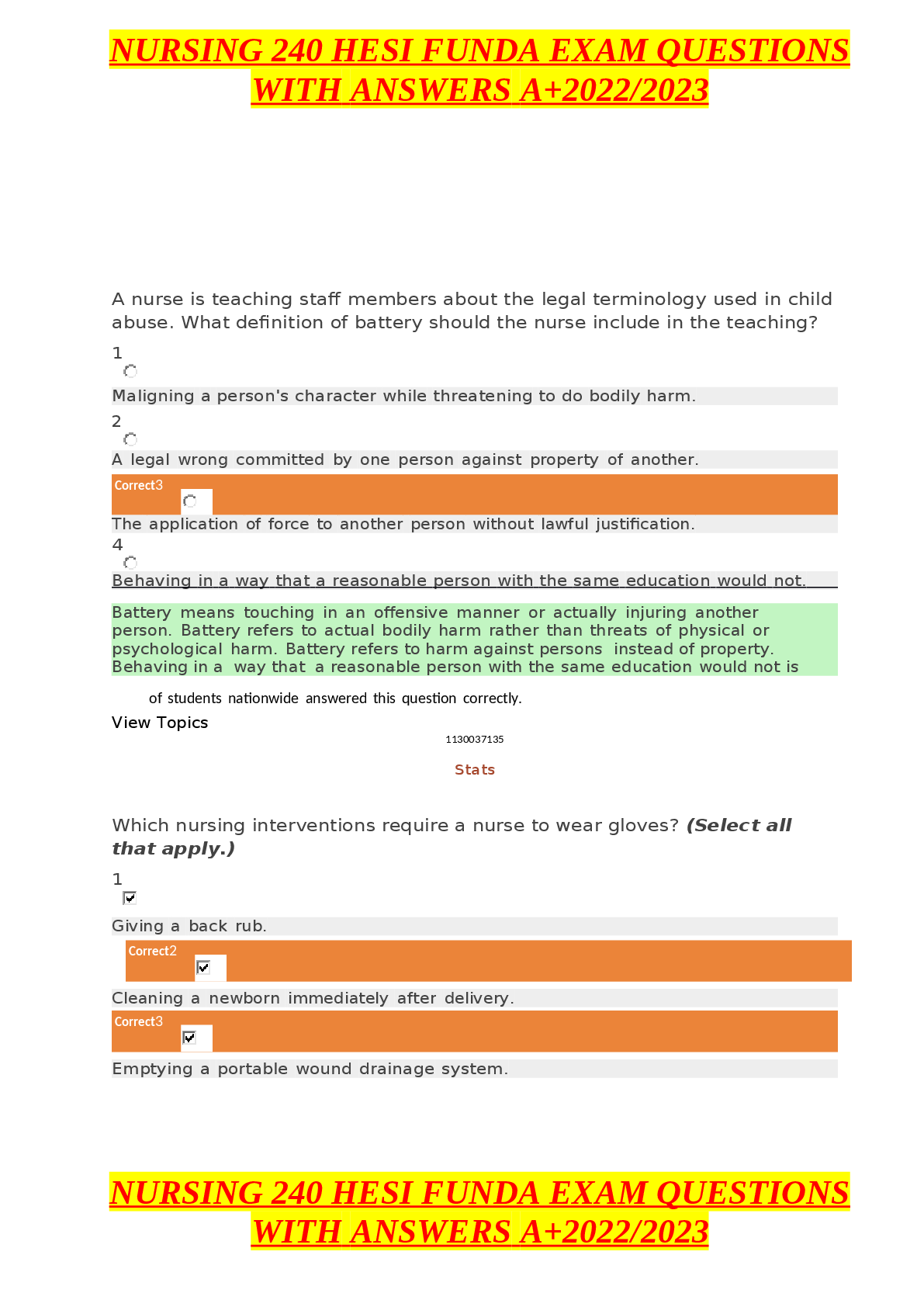EAQ's CH 12 schizophrenia spectrum disorder
A nurse manager plans to follow up with a nurse after hearing which comments while talking to a patient who is reporting someone is trying to poison him or her?
a. "Let'
...
EAQ's CH 12 schizophrenia spectrum disorder
A nurse manager plans to follow up with a nurse after hearing which comments while talking to a patient who is reporting someone is trying to poison him or her?
a. "Let's discuss the stressors you have in your life right now."
b. "Tell me more about how someone keeps trying to poison your food."
c. "Have other members of your family ever experienced this kind of thing?"
d. "How has this affected your ability to keep a job or care for yourself?" ans: b.
It is nontherapeutic to reinforce the delusion by encouraging the individual to focus on the details, as suggested by asking the patient how his or her food is being poisoned. The statements "Have other members of your family ever experienced this kind of thing?", "How has this affected your ability to keep a job or care for yourself?", and "Let's discuss the stressors you have in your life right now" do not reinforce the delusion. Rather, they help gain knowledge about the history of the disorder in the family, the extent of the dysfunction the fear is causing, and the triggers that may have resulted in this behavior.
p. 209, Box 12.4
The type of altered perception most commonly experienced by patients with schizophrenia is
a. Delusions
b. Illusions
c. Tactile hallucinations
d. Auditory hallucinations ans: d.
Hallucinations, especially auditory hallucinations, are the major example of alterations of perception in schizophrenia. They are experienced by as many as 90% of individuals with schizophrenia.
pp. 198-199
A nurse is educating a patient's family about schizophrenia. What is the most appropriate advice the nurse can give to the patient's family?
a. The nurse should advise them to adhere to the treatment plan.
b. The nurse should advise them to keep in touch with support groups.
c. The nurse should advise them to keep the patient in an isolated room.
d. The nurse should avoid mentioning the side effects of the drugs prescribed.
e. The nurse should advise them to immediately stop the medication if the patient's symptoms are relieved. ans: a, b
The nurse should advise the family of the patient to join support groups such as National Alliance on Mental Illness and other local support groups. These groups would help to provide optimal patient care as well as support to the family. Adherence to the treatment plan would result in positive outcomes for the patient. The patient's family must be educated about the possible side effects of the prescribed drugs. This would help in effective monitoring and reducing panic in the patient and family members. The patient should be encouraged to interact with others. Keeping the patient isolated can make the patient either aggressive or withdrawn. The medications should not be stopped immediately after the symptoms are relieved because it could cause relapse of the schizophrenic symptoms. Gradually decreasing the dosage of the drug would be useful to prevent a relapse.
p. 210, Box 12.5
The nurse teaches the parents of an adolescent who was diagnosed with schizophrenia about comorbidity. What does the nurse include in the teaching?
a. "Watch your child for signs of substance abuse."
b. "Make sure your child does not become dehydrated."
c. "With schizophrenia, your child will not experience any depression."
d. "Contact the healthcare provider immediately if your child has anxiety." ans: a.
Substance use disorders involving alcohol, marijuana, and nicotine occur in nearly half of the people who are diagnosed with schizophrenia. Substance use is linked to higher rates of treatment nonadherence. Schizophrenia may cause polydipsia, which is a compulsive drinking of excess fluids, not dehydration. Depression frequently co-occurs in individuals with schizophrenia. Anxiety co-occurs with schizophrenia, but it is not necessary to contact the healthcare provider immediately if these symptoms present.
Test-Taking Tip: You have at least a 25% chance of selecting the correct response in multiple choice items. If you are uncertain about a question, eliminate the choices you believe are wrong, and then call on your knowledge, skills, and abilities to choose from the remaining responses.
p. 193
Which assessment finding supports the presence of extrapyramidal side effects (EPSs)?
a. Nausea and vomiting
b. Eyes sensitive to light
c. Near constant pacing
d. Hand tremors observable bilaterally
e. Sustained contraction of the neck muscle ans: c, d, e
First-generation antipsychotics are dopamine D2 antagonists in both the limbic and motor centers. This blockage of D2 dopamine receptors in the motor areas causes EPSs. Three of the more common EPSs are acute dystonia (acute sustained contraction of muscles, usually of the head and neck), akathisia (psychomotor restlessness evident as pacing or fidgeting, sometimes pronounced and very distressing to
[Show More]






